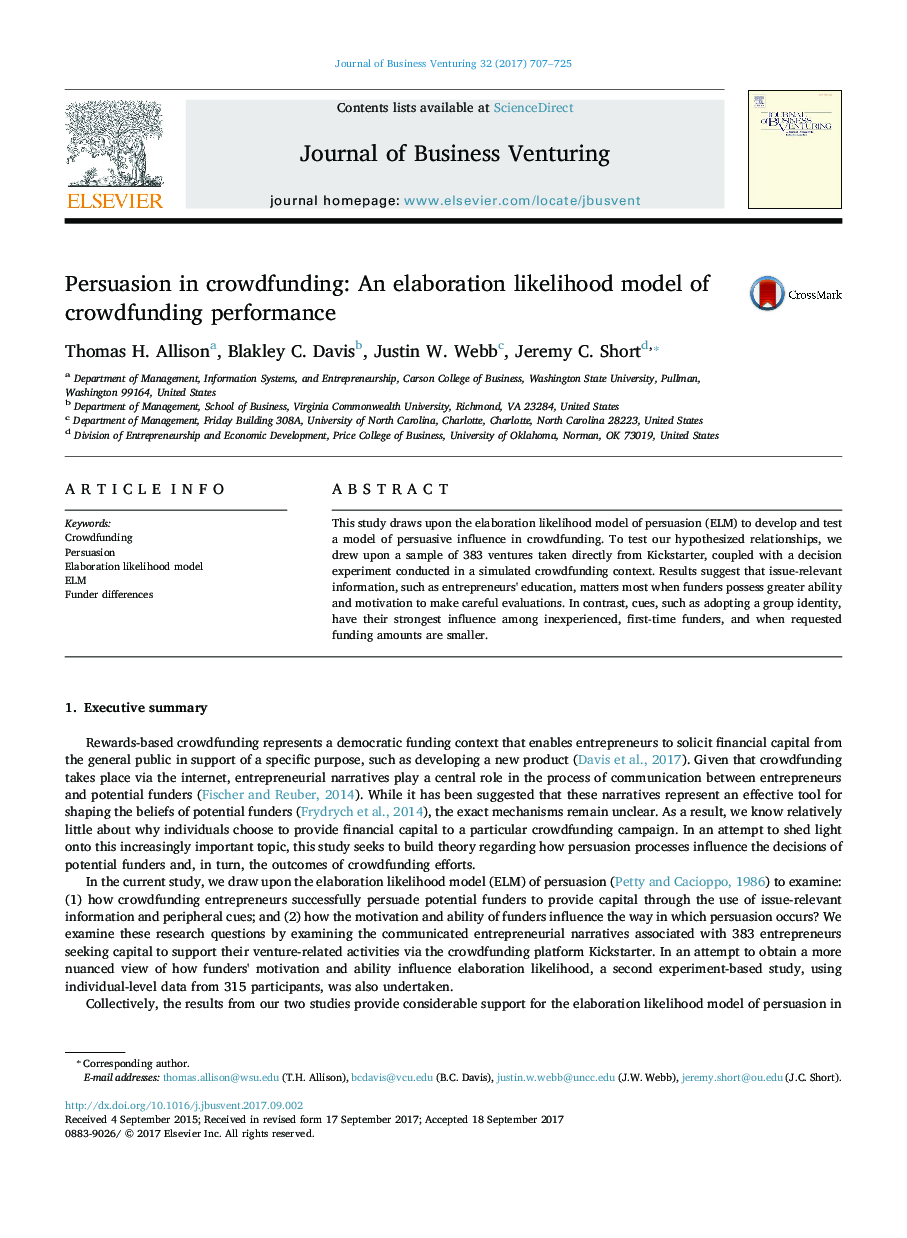| Article ID | Journal | Published Year | Pages | File Type |
|---|---|---|---|---|
| 5109955 | Journal of Business Venturing | 2017 | 19 Pages |
Abstract
This study draws upon the elaboration likelihood model of persuasion (ELM) to develop and test a model of persuasive influence in crowdfunding. To test our hypothesized relationships, we drew upon a sample of 383 ventures taken directly from Kickstarter, coupled with a decision experiment conducted in a simulated crowdfunding context. Results suggest that issue-relevant information, such as entrepreneurs' education, matters most when funders possess greater ability and motivation to make careful evaluations. In contrast, cues, such as adopting a group identity, have their strongest influence among inexperienced, first-time funders, and when requested funding amounts are smaller.
Related Topics
Social Sciences and Humanities
Business, Management and Accounting
Business and International Management
Authors
Thomas H. Allison, Blakley C. Davis, Justin W. Webb, Jeremy C. Short,
